Filter by
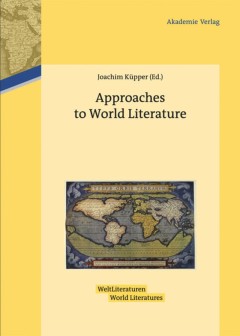
Approaches to World Literature
The present volume introduces new considerations on the topic of "World Literature", penned by leading representatives of the discipline from the United States, India, Japan, the Middle East, England, France and Germany. The essays revolve around the question of what, specifically in today's rapidly globalizing world, may be the productive implications of the concept of World Literature, which …
- Edition
- -
- ISBN/ISSN
- 9783050062716
- Collation
- 180 halaman
- Series Title
- WeltLiteraturen / World Literatures volume 1
- Call Number
- 800 APP
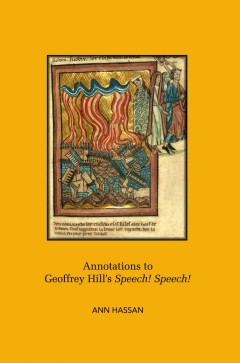
Annotations to Geoffrey Hill's Speech! Speech!
Geoffrey Hill’s Speech! Speech! (2000) encapsulates two thousand years’ worth of utterances in a symbolic act of remembrance and expression of despair for the current age, in which we find “our minds and ears fouled by degraded public speech—by media hype, insipid sermons, hollow political rhetoric, and the ritual misuse of words.” Through 120 densely allusive stanzas—“As many as …
- Edition
- -
- ISBN/ISSN
- 9781468129847
- Collation
- 282 halaman
- Series Title
- -
- Call Number
- 800 HAS a

Affective Disorders : Emotion in Colonial and Postcolonial Literature
Situated at the intersection of postcolonial studies, affect studies, and narratology, Affective Disorders explores the significance of emotion in a range of colonial and postcolonial narratives. Through close readings of Naguib Mahfouz, Joaquim Maria Machado de Assis, and Upamanyu Chatterjee, among others, Bede Scott argues that literary representations of emotion need not be interpreted solel…
- Edition
- -
- ISBN/ISSN
- 9781786941701
- Collation
- -
- Series Title
- Postcolonialism Across the Disciplines
- Call Number
- 800 SCO a
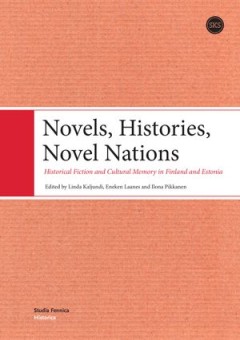
Novels, Histories, Novel Nations : Historical Fiction and Cultural Memory in …
"This volume addresses the prominent, and in many ways highly similar, role that historical fiction has played in the formation of the two neighbouring ‘young nations’, Finland and Estonia. It gives a multi-sided overview of the function of the historical novel during different periods of Finnish and Estonian history from the 1800s until the present day, and it provides detailed close-readi…
- Edition
- -
- ISBN/ISSN
- 978-952-222-746-1
- Collation
- -
- Series Title
- -
- Call Number
- 808.3 NOV
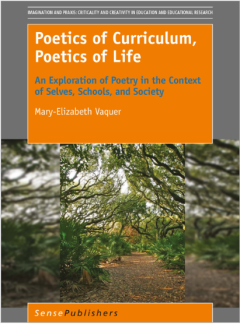
Poetics of Curriculum, Poetics of Life; An Exploration of Poetry in the Conte…
Puisi Kurikulum, Puisi Kehidupan; Eksplorasi Puisi dalam Konteks Diri, Sekolah, dan Masyarakat. Retorika reformasi pendidikan saat ini di seluruh dunia berulang kali menggunakan bahasa pembelajaran abad ke-21 dan pemikiran inovatif, namun secara berlawanan, melalui kebijakan pemerintah, ujian dengan risiko tinggi dan kompetisi internasional, standarisasi pendidikan yang sangat mirip dengan Tayl…
- Edition
- -
- ISBN/ISSN
- 978-94-6300-465-7
- Collation
- -
- Series Title
- Imagination and Praxis: Criticality and Creativity in Education and Educational Research (IPCC)
- Call Number
- 809.1 VAQ p

Poetic Inquiry II - Seeing, Caring, Understanding; Using Poetry as and for In…
Kami menawarkan koleksi karya internasional baru tentang penggunaan puisi dalam ilmu-ilmu sosial yang melampaui batas-batas metodologis dan disiplin batas-batas metodologis dan disipliner konvensional. Membangun Penyelidikan Puitis I - Penyelidikan Puitis: Suara-suara yang Bergairah dalam Ilmu Sosial (Prendergast, Leggo & Sameshima, 2009); Seni Penyelidikan Puitis (Thomas, Cole & Stewart, 2012)…
- Edition
- -
- ISBN/ISSN
- 978-94-6300-316-2
- Collation
- -
- Series Title
- -
- Call Number
- 809.1 GAL p
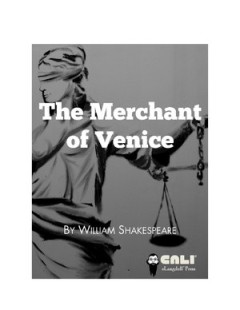
The Merchant of Venice
This work is presented as part of eLangdell Press' Law and Literature Collection. It was selected based on a review of syllabi in this discipline."The law and literature movement focuses on the interdisciplinary connection between law and literature. This field has roots in two major developments in the intellectual history of law—first, the growing doubt about whether law in isolation is a …
- Edition
- -
- ISBN/ISSN
- -
- Collation
- -
- Series Title
- -
- Call Number
- 823 SHA m
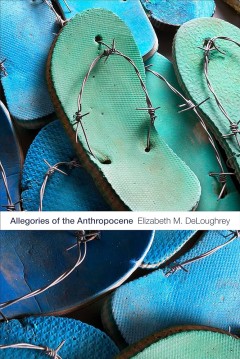
Allegories of the Anthropocene
In Allegories of the Anthropocene Elizabeth M. DeLoughrey traces how indigenous and postcolonial peoples in the Caribbean and Pacific Islands grapple with the enormity of colonialism and anthropogenic climate change through art, poetry, and literature. In these works, authors and artists use allegory as a means to understand the multiscalar complexities of the Anthropocene and to critique the v…
- Edition
- -
- ISBN/ISSN
- -
- Collation
- -
- Series Title
- -
- Call Number
- 800 LOU a
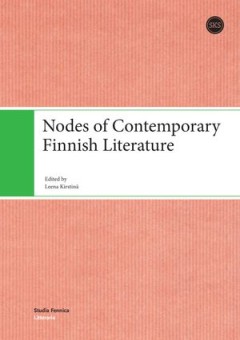
Nodes of Contemporary Finnish Literature
This book examines phenomena from Finnish and Finnish-Swedish literature written in the years between the 1980s and the first decade of the new millennium. Its objective is to study this interesting era of literary history in Finland and to sketch some possible directions for future development by identifying literary turning points which have already occurred.
- Edition
- -
- ISBN/ISSN
- 9789522223593
- Collation
- -
- Series Title
- Studia Fennica. Litteraria
- Call Number
- 800 NOD
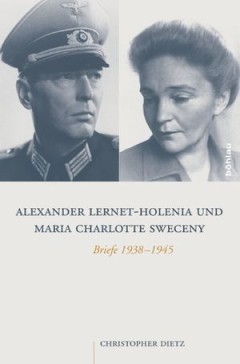
Alexander Lernet-Holenia und Maria Charlotte Sweceny : Briefe 1938-1945
In the centre of this study stand some 154 letters exchanged between the Austrian writer Alexander Lernet-Holenia (1897-1976) and Maria Charlotte ("Lotte") Sweceny (née Stein, 1904-1956), the co-proprietor of the Viennese publishing house Manz, between 1938 and 1945. The transcripts are followed by a commentary that aims to elucidate the historical, individual and geographical references. A me…
- Edition
- -
- ISBN/ISSN
- 9783205788874
- Collation
- -
- Series Title
- -
- Call Number
- 800 DIE a
 Computer Science, Information & General Works
Computer Science, Information & General Works  Philosophy & Psychology
Philosophy & Psychology  Religion
Religion  Social Sciences
Social Sciences  Language
Language  Pure Science
Pure Science  Applied Sciences
Applied Sciences  Art & Recreation
Art & Recreation  Literature
Literature  History & Geography
History & Geography